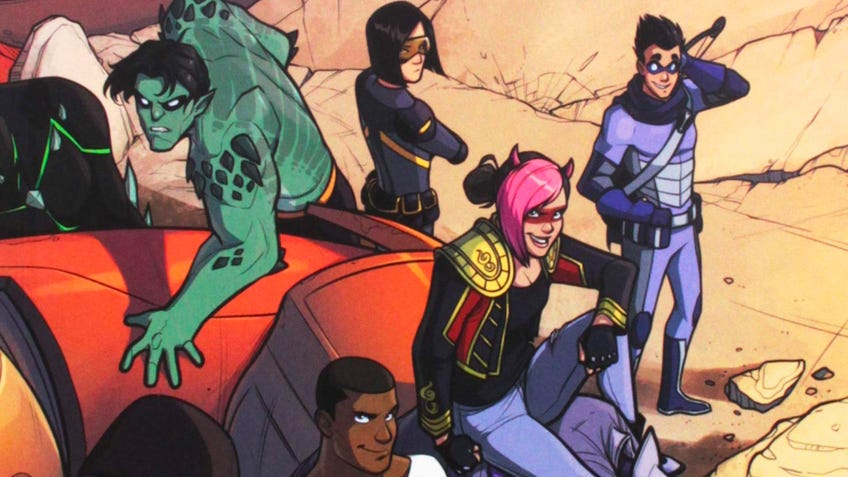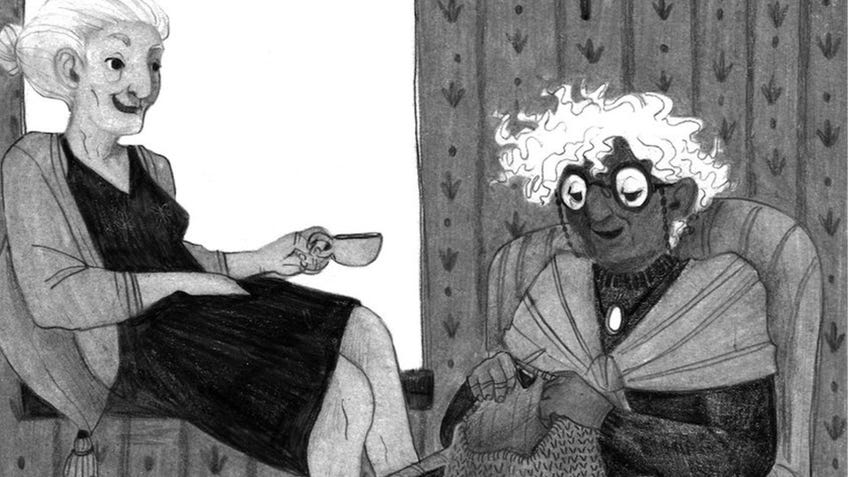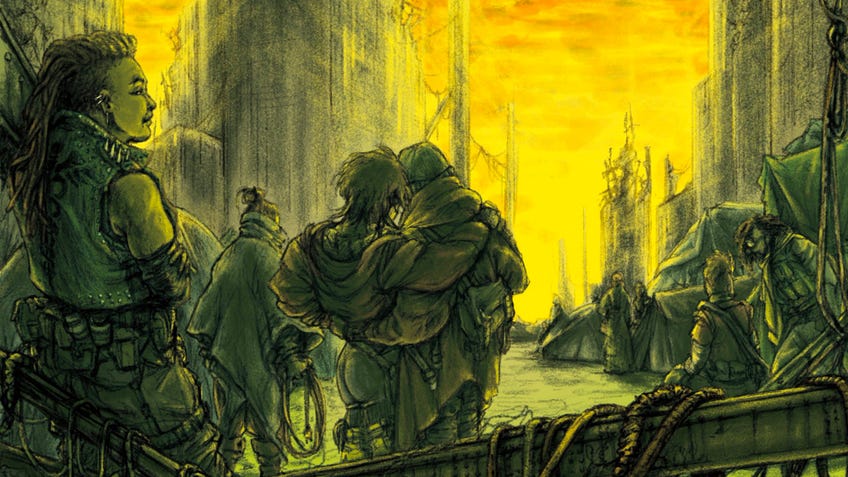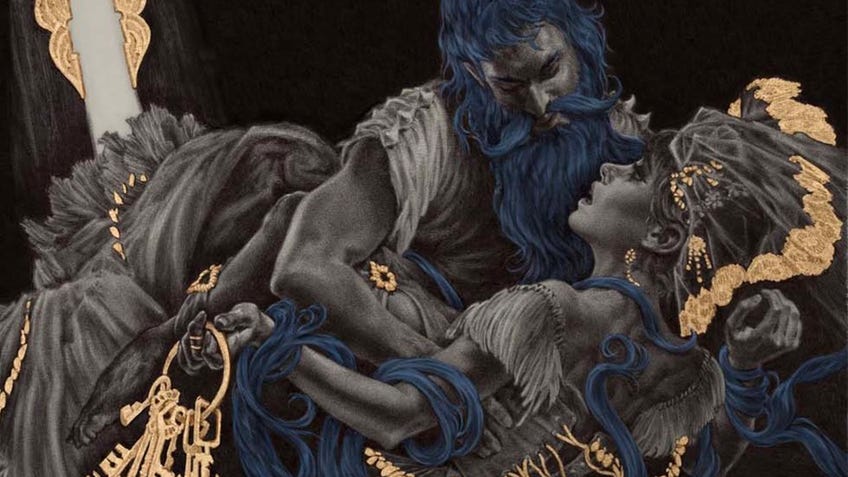Indie RPGs show roleplaying can - and should - be far more than Dungeons & Dragons
The tabletop games and designers taking players from fantasy stories to real-world change.
Dungeons & Dragons is such a behemoth in the tabletop roleplaying game scene that it’s become a synecdoche for the hobby itself; to many, “D&D” and “tabletop RPG” are one and the same. The game is massively popular. With the almost fanatical acclaim garnered by actual-play shows such as Critical Role and The Adventure Zone, even those who have no interest in playing the game can indulge in it with ardour. All this isn’t completely undeserved. “It is no controversy to say that D&D is the first roleplaying game” scholar Nicolas Lalone writes in the Journal of Analog Game Studies.
That said, D&D was never one, grand invention, one single, startlingly innovative concept. While Gary Gygax and Dave Arneson did create a whole new genre of games, D&D’s constituent parts were all borrowed from or inspired by previous works. D&D’s closest ancestors were Chainmail, a game of medieval miniatures combat (itself a descendent of the long tradition of wargames) and Braunstein, a short-lived game that Arneson’s friend Dave Wesley had created in order to introduce his gaming group to more personal, character-driven play.
The current edition of D&D is known as the “Fifth Edition”, even though the game has actually seen a complicated series of basic and advanced versions, updates, revamped starter kits and even a “3.5 edition”. Yet, the basic engine underlying the game, along with its genre and narrative framework, has remained relatively stable. To play D&D is to fight monsters using polyhedral dice, with the icosahedral d20 reigning supreme. To play D&D is to explore a Tolkien-inspired Western-fantasy world where violence solves most problems and a small, mostly solitary band of heroes has to go about saving everyone else (often nicking a bunch of historically-valuable treasure en route).
You’ll find quirky, experimental games; games that defy traditional mechanics; games that transport you to unusual worlds powered by unconventional themes; games that will make you re-examine what a roleplaying game even is.
There’s absolutely a place for the kind of power fantasy D&D offers, and the game is undeniably fun. But, as game designer Mary Flanagan notes in her book Critical Play, “games carry beliefs within their representation systems and mechanics”, and a “careful examination of social, cultural, political, or even personal themes” in a game is not only laudable, but also an essential part of engaging with our media environment. It’s possible to enjoy something while simultaneously pointing out its flaws. And it’s equally possible to love D&D while indulging in a variety of other games.
Diversifying one’s gaming palate will open up new avenues of roleplay and artistic exploration. It’s within the indie games scene where you’ll find quirky, experimental games; games that defy traditional mechanics; games that transport you to unusual worlds powered by unconventional themes; games that will make you re-examine what a roleplaying game even is. And, while D&D might suggest that multiple 300-page rulebooks is the norm, many of these games feature lightweight rules and easy-to-parse mechanics that still encourage rich, immersive gameplay.

In D&D, players have agency over a single character’s actions and interiority. The dungeon master controls every other inhabitant and aspect of the setting, with near-complete authority of how a story unfolds and reacts to players. This sort of gameplay is excellent for creating a sense of discovery, for scratching the exploration itch, for thrusting players into unknown and dangerous territory. But it’s not the only way.
Apocalypse World has been so influential that it spawned a whole sub-genre. ‘Powered by the Apocalypse’ games demand an ethos of shared worldbuilding, where details about the setting, even including the actions of the antagonists, are often the distributed responsibility between the players and game master. In the first edition of Urban Shadows, a PbtA urban-fantasy/horror game set in a modern metropolis, players who pick the werewolf character type have to determine not only the benefits their territory provides them, but also some of the issues besetting this territory. In Masks: A New Generation, a PbtA RPG about angsty, teenage superheroes, when you botch at unleashing your superhuman powers, you, the player, decides whether the effects of your power are unstable, or whether you take harm instead. In PbtA games, antagonists don’t even get to act until a player flubs a dice roll. There’s no concept of “initiative” in combat, only consequences of poor roles. In this way, the world is far more reactive to players’ actions, and less dependent on the authority of the game master.

Shared responsibility is particularly interesting when it comes to games about mysteries. Traditionally, the dungeon master comes up with a mystery and leaves it to players to unravel. This is so ubiquitous an idea, that it seems obvious and inescapable: who else would draw up the mystery?
While many games benefit from having a central, authoritative figure to mediate and generate conflict, a GM is by no means a requirement.
However, a roleplaying game includes a set of affordances that a film or a novel does not, allowing it to be expressive in ways unique to games as a medium. In Brindlewood Bay, where you play elderly women solving Murder, She Wrote-style mysteries in a cozy seaside town, the GM only finds out who the culprit is at the end of the session, when players decide on the solution. The GM sets up the scene of the crime, and peppers the game session with arbitrary “clues” (a severed finger, a strange footprint, a torn scrap of cloth). When the crime-busting grannies are confident in their investigations, players weave together the disparate clues and construct the truth of what actually happened; their theories transfiguring into the actual, diegetic solution to the mystery..
Lovecraftesque, a storytelling game of ordinary folks embroiled in cosmic horror in the tradition of (but specifically calling out the problematic side of) HP Lovecraft, takes a similar stance but takes it a step further: eschewing a GM altogether, players themselves come up with clues, and then competitively try to assert their own version of the truth by twisting other players’ clues towards their own vision. One player might describe scratches on a wall, imagining a clawed monster rampaging through the manor. Another might take that clue about the scratches to instead mean that the manor is tearing itself apart at the seams, and introduce clues pointing to the house’s sentience. Brindlewood Bay and Lovecraftesque make particular use of the peculiar affordances of shared storytelling and roleplaying in ways film and novels could not to deliver engrossing, satisfying mysteries.
Having a game master at all is just another convention set by D&D that we take for granted. While many games benefit from having a central, authoritative figure to mediate and generate conflict, a GM is by no means a requirement. A roleplaying game that wants to do without a GM can simply supply a group of players with pre-authored prompts and conflicts to react to, and set players loose.
Avery Alder, on the other hand, created what’s alternatively known as the “No Dice, No Masters” or “Belonging Outside Belonging” engine. Alder initially envisioned the system for her game Dream Askew, where you play members of a post-apocalyptic queer enclave trying to survive in their new realities. In addition to playing a single character, each player picks an antagonistic force of the world to portray; “The Outlying Gangs”, for instance, or “The Psychic Maelstrom”. Thus, players are equally responsible for creating conflicts for each other and keeping the story moving in interesting directions. From a poetic angle, this mirrors the anarchic sensibility of the game’s theme: queer folks creating a new society unconstrained by traditional power structures.
Even more radical is how Dream Askew incentivises players to create problems and conflicts for themselves. Every character in Dream Askew has a set of “Strong Moves” that show off their power and capabilities. However, in order to use such moves, characters must earn tokens, the easiest way of doing so being the use of “Weak Moves”. These conversely showcase the failings and frailties of your character, setting them up for harm and failure. In order to “restrain someone psychically”, a player may have to first “temporarily lose control” at some point. While traditional RPGs focus on the methods players use to avoid, mitigate and overcome difficulties, Alder, leaning on the idea that conflicts are potent ingredients for storytelling, empowers players to dictate the tragedies that befall their own characters - to not just react, but enact.

Roleplaying games, of course, are not merely sets of disembodied rules stacked together. The role part of roleplaying, the stories we share, need context and setting, need themes and emotional cores around which to coalesce. Traditionally, D&D games have all more-or-less told stories of a small band of heroes saving a Western-fantasy world from evil monsters. Colonial and stereotypical tropes often abound. A whole host of independent games, on the other hand, seek to broaden this imaginative space and cast us in unfamiliar roles in order to tell unconventional stories.
A whole host of independent games seek to broaden this imaginative space and cast us in unfamiliar roles in order to tell unconventional stories.
Take Rowan, Rook and Deckard’s Spire: The City Must Fall. Many of its setting’s elements might seem familiar to a D&D player. Conflict between the High Elves and the Dark Elves. Forbidden, dangerous magic. A small band fighting for the greater good. Lots of violence. Yet, instead of employing them as mere plot devices, Spire weaves all these elements around a central theme: why do you fight and when do you stop? Whereas violence in traditional tabletop RPGs serves as a fun thing to do, Spire thrusts you into armed conflict and then forces you to confront the violence. “Why are you doing this?” the game challenges you to answer.
While lighter in tone, complex, ethnic relations is again a central theme in Jiangshi: Blood in the Banquet Hall by Banana Chan and Sen-Foong Lim. A hybrid horror-dramedy, the game casts the players as an immigrant Chinese family in Roaring Twenties America struggling to run a Chinese restaurant. And also fend off roving vampires at night. Swashbuckling monster-fights erupt in oodles, but the game also discusses cultural assimilation, racism, class warfare and the intergenerational divide. Jiangshi combines two familiar elements - family drama and vampire hunting - but roots them in the Chinese immigrant experience, creating an unusual and highly engaging fantasy game.
Spire and Jiangshi might serve as interesting “stepping stones” for those who wish to branch out of traditional RPGs: these are still games where small teams must fight to prevail against the supernatural. The world of roleplaying games burrows far deeper, however.
Take Whitney “Strix” Beltrán, Marissa Kelly and Sarah Doombringer’s celebrated Bluebeard’s Bride, where players collectively embody the doomed bride of the folktale villain Bluebeard. The RPG, designed for one-shots, shoves players headlong into a creepy old house, where players encounter horror after horror in various rooms before succumbing to the evil that inhabits the building. The point is for the players to fail, to experience what failure means. Through this, the game delivers its central ideas of feminist and feminine horror, using powerlessness as a game mechanic and employing supernatural hyperbole of real-world misogyny to highlight anti-feminist thought.
Or take Dialect, where the focus isn’t at all on what your characters do but on what the characters say. Dialect revolves around the new words members of an isolated community create as they grow apart from the rest of humanity. The actions your characters carry out are of lesser importance, a side-dish in your consumption of a shared story. You’re asked instead to chew on language change, on the feelings we want to but can’t adequately express, on creating meaning when faced with adversity. This is a very different style of roleplaying game from Dungeons & Dragons.
It is no coincidence that many of these games are created by designers from historically marginalised communities. More than offer new playgrounds for roleplaying, independent tabletop RPGs are the artistic visions of those whose voices the spotlight often ignores, those whose ideas are left unsung and unexplored. More than tools for storytelling, independent RPGs may very well be tools for social transformation. More than change the way in which we think of games, they might change the way we think of people.



